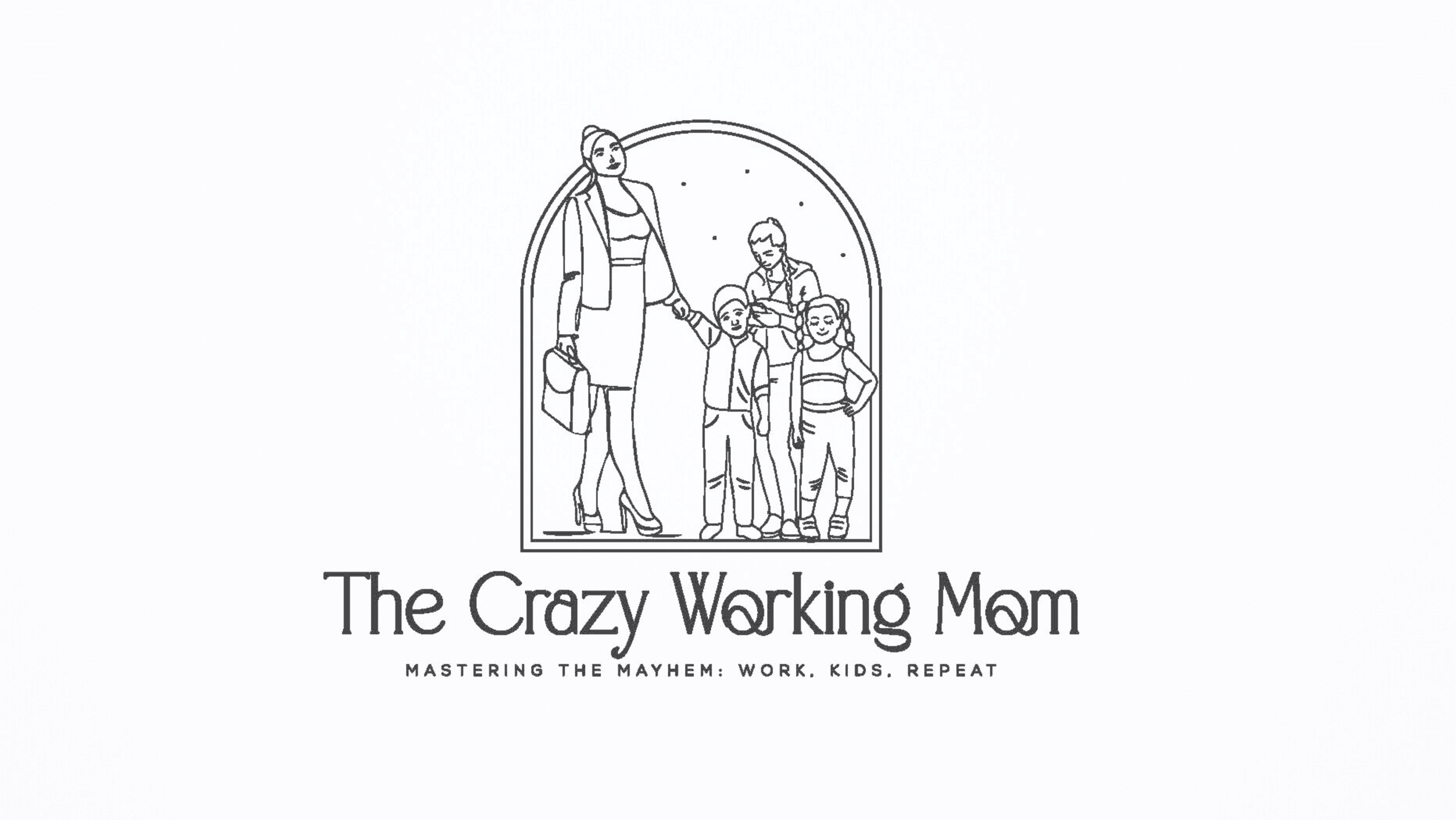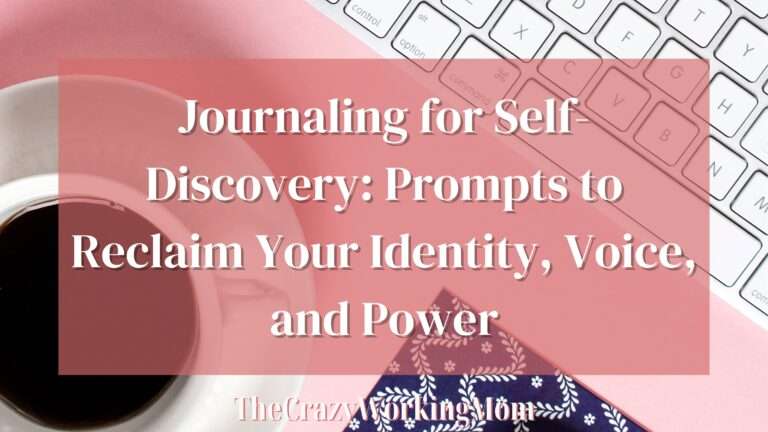How to Overcome Dissociation: Powerful Strategies for Overwhelmed Moms

Have you ever felt so burned out that you suddenly realize you’re running on autopilot, completely disconnected from yourself and your surroundings? Maybe you find yourself zoning out while cooking dinner, feeling numb during family movie night, or driving home without remembering the trip.
You’re not alone.
This experience is known as dissociation, and it’s far more common among moms navigating constant stress and overwhelm than you might think.
You’re not alone, and you’re certainly not stuck here. Dissociation is common in periods of extreme stress and can even lead to the development of dissociative disorders.
The good news? There are several things you can do starting today to overcome dissociation and get those brain waves moving in a positive direction again! Below are five actionable strategies on how to overcome dissociation and reclaim your connection to yourself and your beautiful, incredible, sometimes messy life.
Ready? Let’s dig in.

How to Overcome Dissociation: The Power-packed Strategies
1. Ground Yourself in the Present Moment
Grounding yourself in the present moment is the easiest way to break free from dissociation. This technique works wonders because dissociation thrives in distraction and overwhelm. Next time you feel disconnected, try this quick grounding exercise:
- Name five things you can see.
- Name four things you can touch.
- Name three things you hear.
- Name two things you smell.
- Name one thing you taste.
These sensory steps snap your mind back into the present, interrupting dissociative episodes and returning your attention to what’s happening now.
2. Make Space for Mindfulness (Even 2 Minutes Counts!)
As a mom, mindfulness might feel impossible between soccer practice, dinner prep, and bedtime stories.
Here’s a secret: mindfulness doesn’t need hours. Just two mindful minutes can reconnect you with yourself.
Set an alarm once a day and spend two intentional minutes breathing deeply and slowly, noticing how your body feels. This brief pause reduces stress hormones, calms your nervous system, and decreases the frequency of dissociative episodes triggered by extreme stress.
You will find that once you start even a tiny mindfulness routine, you will build additional moments into your day to experience it. This will allow you to check in with yourself more and lower those crazy stress levels, oftentimes just through breathwork.
Winning!

3. Release Stress through Intentional Movement
One powerful way to prevent dissociation is by releasing built-up stress through physical movement.
Before you get intimidated and click away, no, this does not mean you need to spend an hour at the gym every day.
A 10-minute walk, dancing around the kitchen with your kids, or gentle stretching before bed can make a huge difference. Shoot, there are even apps out now that will build exercises around you sitting in your office chair or lying in your bed scrolling. (No, this isn’t ideal long term, but when you are trying to build more movement into your day-to-day, THOSE ARE BIG WINS!)
Movement helps regulate your nervous system and brings awareness back into your body. This reduces symptoms of dissociation caused by ongoing burnout and overwhelm. A little bit of movement can go a long way. I am not asking you to commit to the moon and the stars, or to running a Disney marathon (though I am up for a spontaneous Disney trip if you are booking), but I am asking you to commit to moving more today than you did yesterday. Think 1% more than the day before. Your mental health will thank you.
4. Journaling Your Way Back to Yourself
When you’re stuck at dissociation station, your thoughts can feel distant or unreal. Journaling is a highly effective, accessible tool to reconnect with your emotions and identity.
Spend five minutes daily writing down how you’re feeling, even if it’s messy or unclear.
Ask yourself:
- What emotions am I feeling right now?
- What triggered these feelings?
- What’s one small step I can take today to feel grounded?
Journaling helps process negative thoughts, anchors you in reality, and strengthens your emotional resilience, reducing future dissociative episodes.

If this feels like I just asked you to eat a horse, then let’s break it down. Don’t think of it as journaling. Just brain dump onto the page. Start with a fresh sheet of paper. Write down the first word or phrase that comes to mind, and then write down everything that you can think of that is associated with that topic. Run through this practice a few times and see what comes up for you. You may be surprised at what you discover.
When it comes to strategies on how to overcome dissociation, journaling may be one of my favorites just for the brain dumps.
5. Surround Yourself with Understanding and Support
Dissociation often thrives in isolation, especially when you feel misunderstood or judged. Build a support network of other moms or trusted friends who get it. Who understand how it feels to be in your shoes, and who do not bat an eye when you call from your closet where you are hiding from the kids eating the last ice cream from the freezer so you do not have to share.
Sometimes, simply hearing someone else say, “Me too!” is enough to validate your feelings and bring relief.
Consider joining a local moms’ group, a supportive online community, or even reaching out for coaching to feel truly seen, heard, and empowered again. Community and support systems are powerful antidotes to the burnout cycle that fuels dissociation.
How to Overcome Dissociation: FAQs about Dissociation for Busy Moms
Why do I feel numb or disconnected when I’m overwhelmed?
Your brain uses dissociation to protect you from extreme stress by temporarily disconnecting you from overwhelming emotions or sensations. It’s a survival mechanism, but recognizing it early helps you manage stress better.
Can dissociation affect my parenting?
It can, but becoming aware and proactive in managing stress helps you stay more present, improving both your emotional health and your relationships with your kids.
What quick actions can I take when I notice myself zoning out around my kids?
Use sensory grounding, take a few deep breaths, or engage in immediate physical movement, like stretching or stepping outside for fresh air.
Dissociation and/or dissociative disorders are NOT another thing for us moms to add to our bank of things to experience mom guilt over. And yet, it is a conversation that not many of us are having. When determining how to overcome dissociation, please know there is NO SHAME in reaching out to someone for professional help if you find the strategies listed above are not for you. dissociation can become a mental health disorder if it is not addressed, and you are worthy of the time and attention needed to ensure you are in a healthy and happy mindset.

Take Back Your Power, Mama!
Dissociation isn’t a life sentence. With powerful strategies like grounding exercises, mindfulness breaks, intentional movement, journaling, and a supportive community, you’re fully equipped to reconnect and reclaim your power.
You deserve to live fully present, not just surviving motherhood but thriving through it. You’ve got this. And remember, you’re never alone.
Want more empowering insights into beating burnout and embracing your best self, or ready to really rock it out and dive into working with me as a life coach? Subscribe to my newsletter today and join a community of moms like you!







